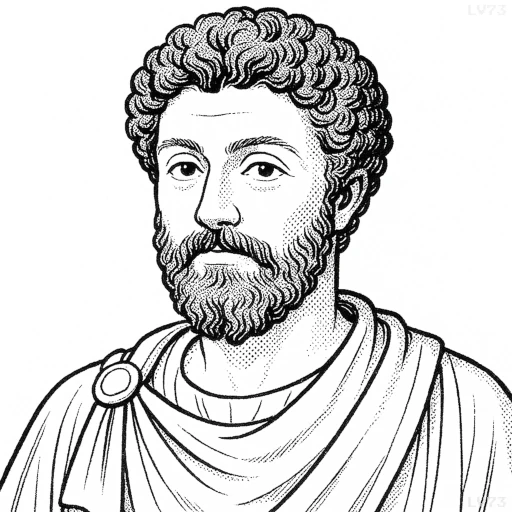“A noble man compares and estimates himself by an idea which is higher than himself; and a mean man, by one lower than himself. The one produces aspiration; the other ambition, which is the way in which a vulgar man aspires.”

- April 26, 121 – March 17, 180
- Roman Empire
- Roman Emperor
table of contents
Quote
“A noble man compares and estimates himself by an idea which is higher than himself; and a mean man, by one lower than himself. The one produces aspiration; the other ambition, which is the way in which a vulgar man aspires.”
Explanation
In this quote, Marcus Aurelius distinguishes between aspiration and ambition, drawing a distinction between the motivations of the noble and the vulgar. A noble man, according to Aurelius, aims to better himself by measuring himself against higher ideals, such as virtue, wisdom, and moral excellence—things that transcend personal success. This leads to aspiration, a desire for self-improvement and alignment with noble qualities. On the other hand, a mean man, who lacks the same noble standards, compares himself to others of lower stature or seeks success based on superficial achievements. This leads to ambition, a self-serving desire for power or recognition, often driven by pride and a desire to appear superior to others rather than to genuinely improve oneself.
Aurelius, a Stoic philosopher and emperor, viewed the pursuit of virtue as the highest goal. For him, true greatness came from aligning with higher principles, not from comparing oneself to others or striving for external validation. He believed that aspiration—the pursuit of moral and intellectual growth—was the mark of a noble soul, while ambition—the pursuit of status or power at the expense of virtue—was a vulgar pursuit. In today’s world, where social comparison and external success often dominate, Aurelius’ words remind us that self-worth should be measured by the values we uphold, not by how we compare to others.
In practical terms, this quote encourages us to focus on personal growth and virtue, rather than comparing ourselves to others or striving for empty accolades. For example, instead of pursuing ambition for titles, wealth, or recognition, we can focus on developing qualities such as integrity, kindness, and wisdom, which are higher and more enduring goals. By measuring our worth against these ideals, we can aspire to become the best version of ourselves, not in competition with others, but in alignment with our highest values.
Would you like to share your impressions or related stories about this quote in the comments section?

